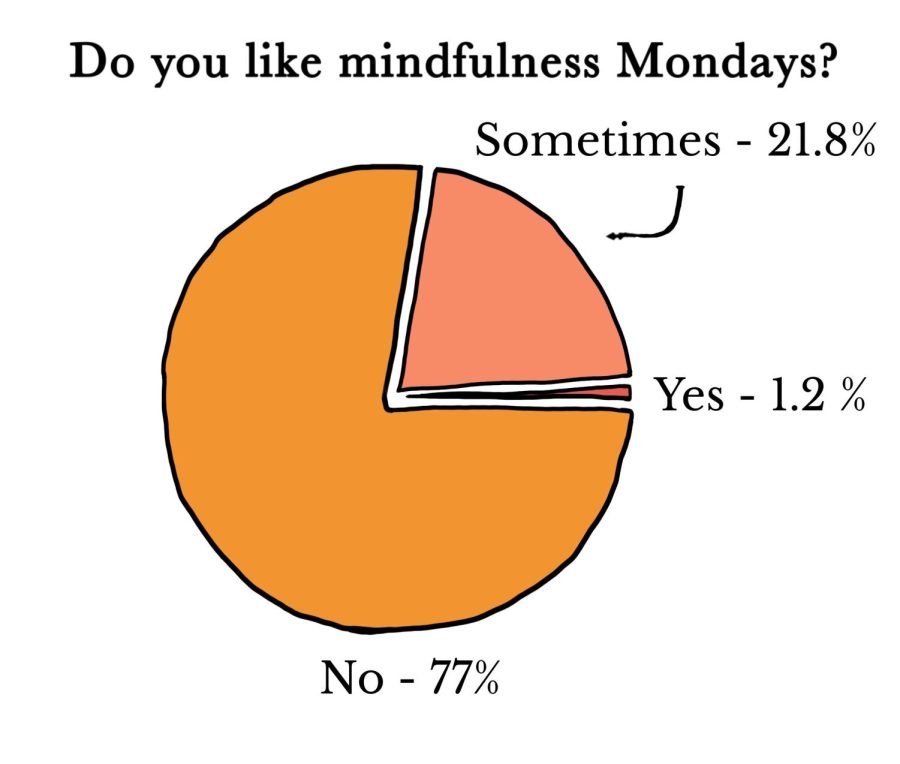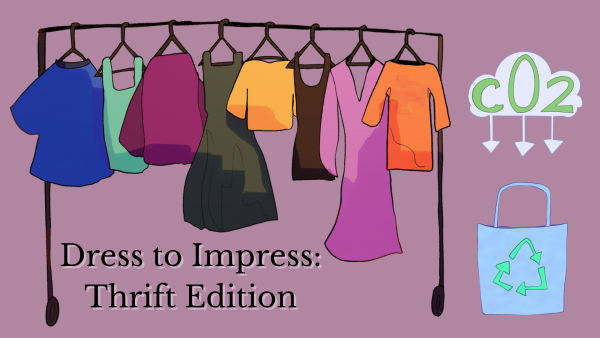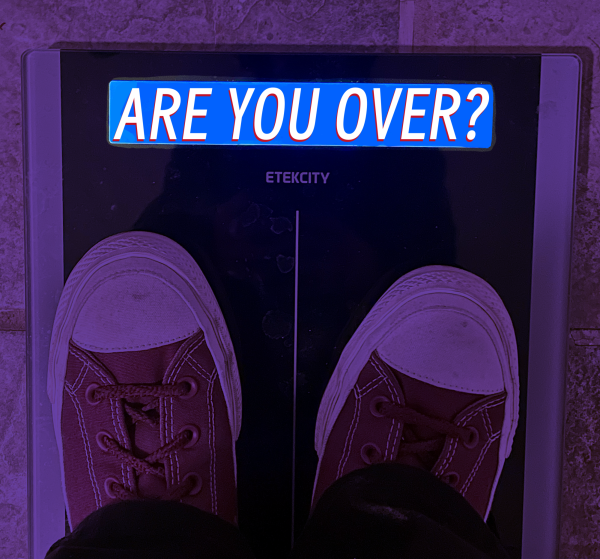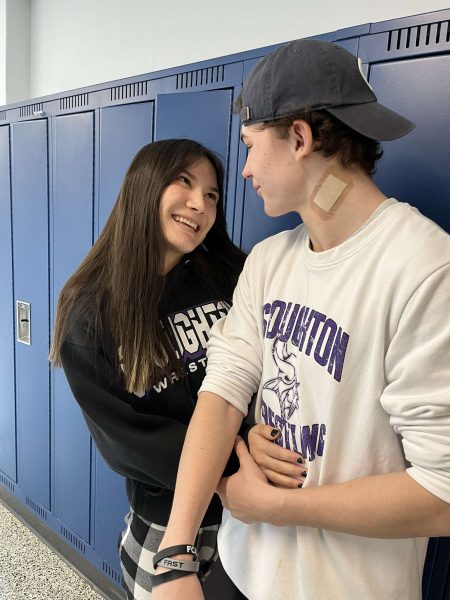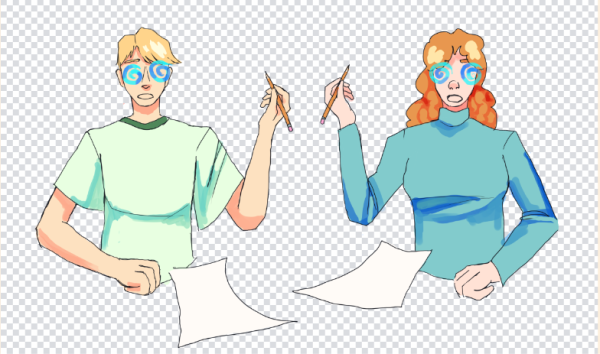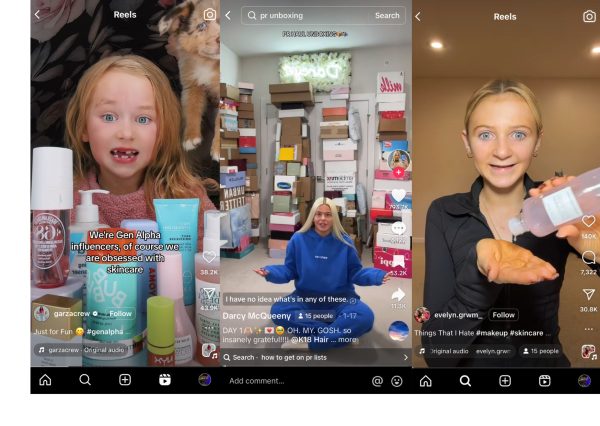Dozing Off During 2+
2+ happens every day in every classroom in Stoughton High School, tacked on as an extra 20 minutes of study and homework time for those who need it on Tuesdays, Thursdays, and Fridays—but on Mondays and Wednesdays, those 20 minutes are used for a student’s personal growth. The lessons are crucial in prospect, but they stumble in action. The best part of 2+ is the 20 minutes of time that are free to use for anything a student needs—the lessons are unnecessary and take up the needed free time.
2+ can be useful. It brings some good time to chat with some teachers about classwork or finish something you were working on during second period and didn’t have enough time to finish during the actual class period. The unfortunate thing is that it’s very short. If you need to catch up on homework or don’t have a study hall to retake a test, those 20 minutes won’t do much for you.
From a Google form survey with 165 respondents, an anonymous student said, “I feel we need to keep 2+. Personally, I don’t have a study hall, so it is nice to have some time to work on things that need to get done. One thing we could do is maybe even expand 2+ to 3+ because I feel like there’s not enough time to accomplish a lot.”
Senior Ani Allen would prefer to change where and what the time is used for.
“I would rather have the extra time for lunch because it’s rarely enough time for people to finish eating, especially if they get hot lunch,” Allen says.
Lunch is not the longest period. For people looking for a longer time to eat, those 20 minutes from 2+ would give people just that.
The issue I raise is that 2+ is helpful for people who want to work on homework, and taking it out of their schedule could produce negative side effects. Those in extracurriculars don’t have much time at home to work on homework or studying, so 2+ is good for catching up on work.
Lunch is short, but not too short that it needs the 20 minutes. 2+ is also short, but needed—at the very least, for small tasks. Plus, once Mindfulness Mondays and Digital Citizenship Wednesdays are taken into consideration, it leaves even less time for students to take care of what needs to be taken care of. Hardly anybody pays attention (as mentioned by quite a few through the google form), and if they are paying attention, then it’s very likely they do not need to be paying attention to the lesson to begin with.
Senior Sam Ross doesn’t think Mindfulness Mondays are working how they should: “I understand that the message that it’s giving is a good one. For that, I can’t say that I am fully against it. I just don’t think that these slideshows actually change anyone’s mind or behavior, as those people wouldn’t participate in it anyway,” Ross says.
Senior Owen Weitner shares a similar opinion, “[Mindfulness Mondays] takes away from people’s time during two plus and doesn’t allow them to meet with other teachers during this time.”
Both of those students raise good points. That same form sent out to gather people’s opinions about 2+ collected the data that 77% out of 165 students that took it disliked Mindfulness Mondays and Digital Citizenship Wednesdays. Adding those lessons when they take up most, if not all, of 2+, is a very big waste of time.
For some, the lessons taught during this time already contain content that students have already heard in the previous year of 2+, not just through other sources. This content has also been brought up and talked about in school since elementary. Some of the lessons aren’t even bringing up great points to discuss. There’s concerns about teaching overwhelmed high schoolers to be mindful and safe, but it’s tough to teach in 20 minutes while students are still waking up.
One student said, “Most students know a lot about the consequences with being unsafe online. Optional classes for this or even integrating it into other classes more would be really helpful if it needs to be talked about.”
The least these lessons could provide is food for thought or information that isn’t considered “common sense”. Most of the time, Mindfulness Monday lessons focus on being aware of interacting with other people and yourself in a positive way. This is a necessary message that should be discussed, but the videos provided and lessons talked about dilute all of the points that should’ve been highlighted. The subject just isn’t talked about with enough understanding of it. If students are being too negative in class, it isn’t enough to say that being negative is not a healthy mindset.
Digital citizenship Wednesdays are another matter. They shouldn’t exist at all. If you’ve made it this far into high school, you likely know how to navigate the internet somewhat safely. A lot of the lessons discussed are things I feel people do automatically, and once again, if people aren’t already doing it, the chance they’ll change their behavior because of the presentations is slim. Mindfulness Mondays and DC Wednesdays are too inefficient for the subject they’re handling, which makes them trivial.
Many survey-takers thought the information provided during lessons should be emailed instead of talked about, but I don’t think anybody will read or interact with those emails if not forced to. It’s best to get rid of them in general.
Sophomore, Vivian Metcalf said, “I think it’s good to have a check in once and a while to remind kids that they should have morals, and sometimes we have decent conversations in class. But most of the time people are on their phones or talking during it.”
The two best scenarios to keep the lessons would be to either include them in classes or have it taught by students. 2+ is necessary, but the lessons are not—which is unfortunate, especially because the message and potential is great.
Editorial Policy: The Norse Star strives to present the news in a fair and unbiased manner. Any column, editorial, or letter to the editor expresses the opinion of the author and not necessarily the entire staff. The staff editorial does not necessarily reflect the views of the entire staff. The Norse Star is a public forum written and produced by the students at Stoughton High School, and they are solely responsible for its content. Students, staff, faculty, and members of the community are welcome to submit letters to the editor of 300 words or less. Letters may be edited due to space limitations, obscenities, or libel concerns. Norse Star will verify the authenticity of any letters sent on the behalf of school organizations or groups. All letters must be signed and emailed to [email protected]
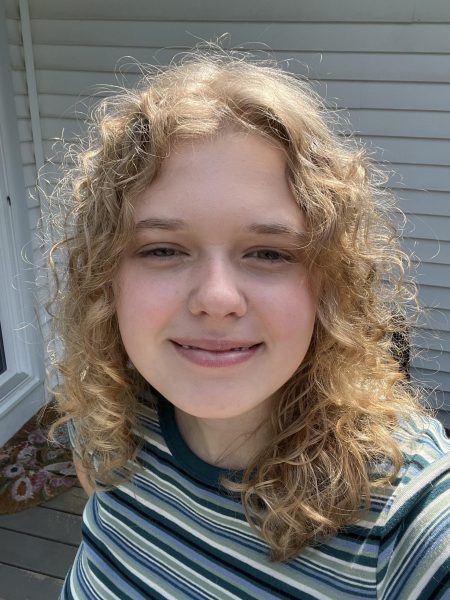
Naomi is a junior, and this is her second year on staff! She's a staff writer and the website manager. She joined the Norse Star because it was a cool...

